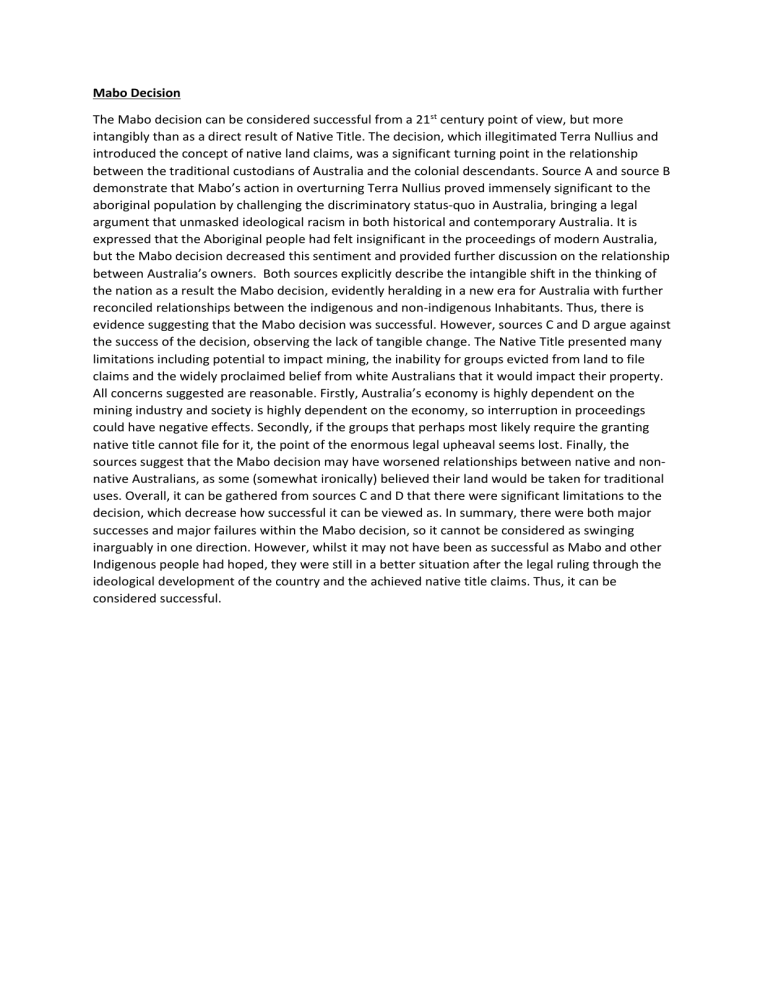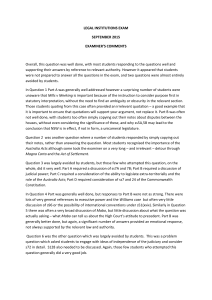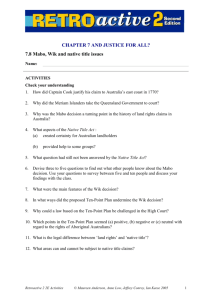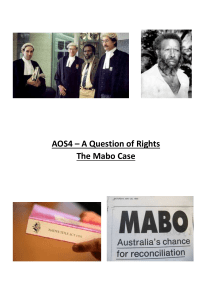
Mabo Decision The Mabo decision can be considered successful from a 21st century point of view, but more intangibly than as a direct result of Native Title. The decision, which illegitimated Terra Nullius and introduced the concept of native land claims, was a significant turning point in the relationship between the traditional custodians of Australia and the colonial descendants. Source A and source B demonstrate that Mabo’s action in overturning Terra Nullius proved immensely significant to the aboriginal population by challenging the discriminatory status-quo in Australia, bringing a legal argument that unmasked ideological racism in both historical and contemporary Australia. It is expressed that the Aboriginal people had felt insignificant in the proceedings of modern Australia, but the Mabo decision decreased this sentiment and provided further discussion on the relationship between Australia’s owners. Both sources explicitly describe the intangible shift in the thinking of the nation as a result the Mabo decision, evidently heralding in a new era for Australia with further reconciled relationships between the indigenous and non-indigenous Inhabitants. Thus, there is evidence suggesting that the Mabo decision was successful. However, sources C and D argue against the success of the decision, observing the lack of tangible change. The Native Title presented many limitations including potential to impact mining, the inability for groups evicted from land to file claims and the widely proclaimed belief from white Australians that it would impact their property. All concerns suggested are reasonable. Firstly, Australia’s economy is highly dependent on the mining industry and society is highly dependent on the economy, so interruption in proceedings could have negative effects. Secondly, if the groups that perhaps most likely require the granting native title cannot file for it, the point of the enormous legal upheaval seems lost. Finally, the sources suggest that the Mabo decision may have worsened relationships between native and nonnative Australians, as some (somewhat ironically) believed their land would be taken for traditional uses. Overall, it can be gathered from sources C and D that there were significant limitations to the decision, which decrease how successful it can be viewed as. In summary, there were both major successes and major failures within the Mabo decision, so it cannot be considered as swinging inarguably in one direction. However, whilst it may not have been as successful as Mabo and other Indigenous people had hoped, they were still in a better situation after the legal ruling through the ideological development of the country and the achieved native title claims. Thus, it can be considered successful.




